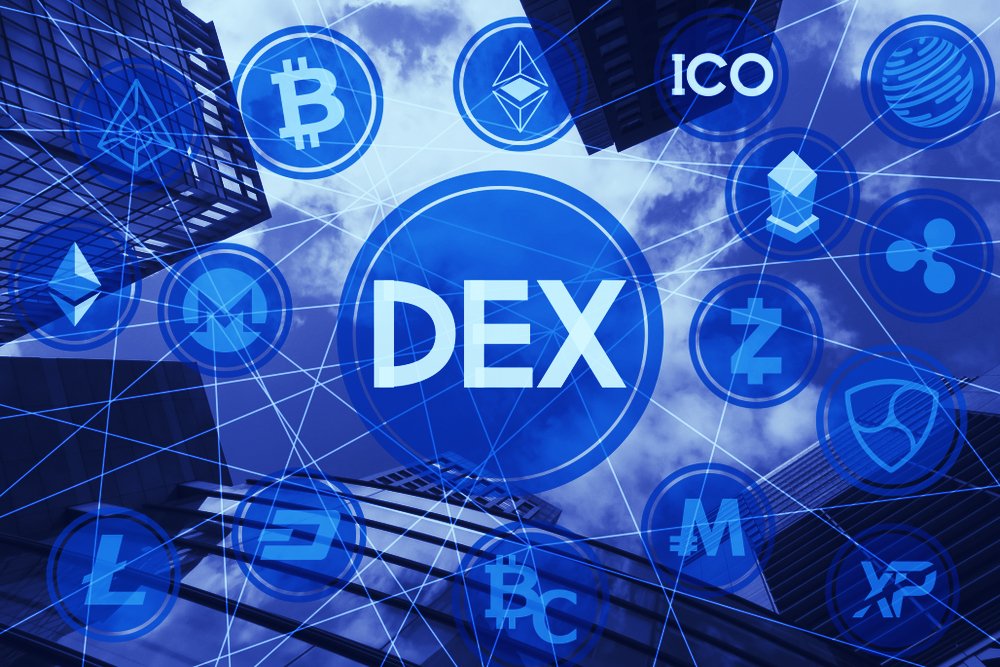Market growth for decentralized exchanges (DEX) is accelerating. The DEX market is expected to grow to $8.2 billion by 2025. For businesses looking to create DEXs, the industry’s exponential growth offers enormous potential profits.
The development of decentralized exchanges (DEX) gives companies a tremendous opportunity to make profits. Decentralized exchanges make it possible to transfer digital assets quickly, securely, and almost instantly from one person to another. This removes centralized organizations unnecessary and enables companies to take custody of their own assets. Decentralized exchanges give cutting-edge services that can enhance customer satisfaction and increase revenue. Businesses can take advantage of the decentralized exchange development and make higher profits by implementing smart strategies.
Let us dive into this blog and learn more about the decentralized exchange, its benefits and what are the potential profit-making ways of using this exchange.
Decentralized exchanges – An overview
In order to properly understand the development of decentralized exchanges, it is necessary to first define a decentralized exchange (DEX). A DEX is a platform that lets users trade cryptocurrencies directly with one another, bypassing a central hub or middleman. Users can trade their assets peer-to-peer (P2P), which does not require any reliability on third party, and they have complete control over them.
Decentralized Exchange (DEX) development is the process of building a cryptocurrency trading platform that allows for peer-to-peer exchanges of Bitcoin, Ethereum and other cryptocurrencies. On the DEX platform, users can trade cryptos directly. It is more secure and less prone to hackers.
Read more : www.luckyu.games/
Decentralized exchanges have many benefits and startups can confidently invest to create DEX platforms. In the next section, we will have a look at the advantages it offers.
Advantages of decentralized exchange development for startups
Startups entering the world of digital assets and decentralized finance (DeFi) have several benefits from decentralized exchange development. Here are a few significant benefits:
Enhanced Security
Compared to centralized exchanges, decentralized exchanges (DEXs) offer a higher level of security due to the use of Blockchain technology and smart contracts. This reduces fraud, hacking, and unauthorized access, providing security to startups and their customers.
Transparency
Since DEXs run on an auditable and transparent blockchain, they can give their users complete visibility into transaction history, order books, and smart contract functionality. Users gain trust because of transparency.
Global Accessibility
DEXs make it possible for startups to connect with customers anywhere in the world without the aid of middlemen or restrictions based on location. This creates new user and market opportunities, enabling startups to increase their reach and draw in a varied user base.
Faster transactions
Compared to the typical centralized exchange, DEXs are quick and efficient at completing transactions. As a result, startups can offer their user to carry out quick transactions without having to wait the longer times required by centralized exchanges.
Integration and Interoperability
DEXs frequently support integration, allowing startups to integrate their platforms with other decentralized applications (dApps) and protocols. Businesses can collaborate and increase, functionality, and hence the user experience is improved overall.
Less Expensive
Traditional centralized exchanges frequently have expensive transaction fees, listing fees, and other operational costs. The costs associated with DEXs, on the other hand, can be drastically reduced, allowing startups to allocate their resources more profitably.
Overall, the development of decentralized exchanges gives startups greater access to the expanding DeFi ecosystem, improved security, and cost-effectiveness. Startups can put themselves at the front of Blockchain technology and take advantage of the benefits of decentralized finance for the success of their companies by embracing DEXs.
Your next question would be how to make profits with this exchange. That is exactly, what you are going to read next. Get to know about the potential profits modules in DEX.
7 Profit potential in decentralized exchange software
Decentralized exchanges are gaining popularity and have the potential to completely change the trading process. These can generate revenue by taking advantage of various monetization opportunities.
Transaction Fees
Decentralized exchanges (DEXs) can make money by charging fees for trades carried out through their platforms. These fees, which are typically based on the volume of transactions, can be a source of income.
Fees for listing
DEXs frequently charge fees to list new tokens on their platforms. Users or anyone looking to list their tokens on a decentralized exchange platform might have to pay a fee. This is another way to generate income for the exchange.
Market-Making Services
DEXs can offer market-making services, in which they offer liquidity for specific tokens or trading pairs. By providing liquidity they can charge fees based on the trade volume, it is also another potential revenue-making way.
Initial DEX Offerings (IDOs) and Token Sales
DEXs can host IDOs and token sales, enabling others to launch their tokens directly on the exchange. To allow these token sales, DEX exchanges may charge a fee or take a cut of the proceeds.
Yield farming & staking
Many DEXs provide yield farming and staking programs that allow users to receive rewards for supplying liquidity or staking their tokens. DEXs can make money by keeping a percentage of the rewards or by charging a fee for these services.
Margin trading
Some decentralized exchanges allow users to trade using Some DEXs allow users to trade using borrowed funds because of this feature. DEXs can charge fees for margin trades or by charging interest on money borrowed.
Offer premium services
Create membership tiers or subscription plans for premium users that grant them access to special features like discounted transaction fees, early access to token sales, or advanced trading options.
It’s important to keep in mind that different DEXs may use different methods for generating revenue, and some exchanges may combine different methods to increase their revenue. Additionally, factors like user adoption, market conditions, and competition in decentralized exchange may also affect profitability.
However, these are some of the most popular or common ways to make money. In the next section, understand the strategies that will help to increase your profit graph.
Strategies to increase the revenue with decentralized exchange
Decentralized exchanges offer a number of different ways to boost earnings. These consist of reducing fees to entice more market participants, introducing new features like future trading, and margin trading, and creating engagement campaigns to promote user adoption. Token models like staking, mining for liquidity, and governance tokens can also be used to draw in traders and liquidity providers. Additionally, DEXs can offer quicker and less expensive transactions by utilizing contemporary technologies like atomic swaps and Automated Market Makers, which enhance user experience and encourages traders to increase their trade frequency. In the end, a well-planned, thorough strategy combining the aforementioned methods will assist DEXs in producing more lucrative revenue.
Hope it gave you some more clarity about the decentralized exchanges profit making factors. Now that everyone is shifting towards DEX, the future scope is very huge. In the next section, get to know about the opportunities for business in the coming years.
Future opportunities for businesses with decentralized exchange development
Businesses have exceptional opportunities to take advantage of the revolutionary changes taking place in the digital economy thanks to the development of decentralized exchanges. With the help of this new technology, businesses can build safe and quick digital asset exchanges by combining the advantages of decentralized digital networks, open-source software, and Blockchain technology. The advantages of using these services range from fee savings to the availability of features that are not offered by more conventional exchanges, such as access to global liquidity pools.
Decentralized exchanges are also hard to interfere with because of their distributed architecture, which makes them perfect for companies looking for more flexibility and dependability. The development of cryptocurrencies and blockchain technology has created an ideal opportunity for businesses because these platforms are becoming more powerful and useful.
Conclusion
Decentralized exchanges (DEXs) offer significant profit potential for both businesses and individuals. The way we trade digital assets is changing as a result of DEXs’ improved security, open operations, and global accessibility. Significant revenue streams may be produced by DEXs’ transaction fees, listing fees, and market-making services. Or you can get help from any Web3.0 development company which will include many types of revenue-making potentials in the decentralized exchange. As a result, businesses can take advantage of the financial benefits DEXs offer by recognizing and utilizing their potential for profit. They can establish themselves as leaders in this rapidly-evolving sector.











Leave a Reply